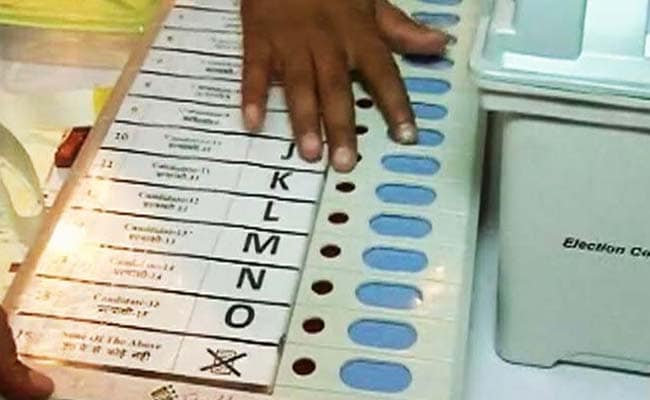
Uttarakhand High Court has allowed the Election Commission to hold its EVM Challenge on Saturday.
NEW DELHI:
Coming to the defence of the Election Commission that has been the target of attacks from political parties over its voting machines, the Uttarakhand High Court on Friday barred political parties and others from criticising the use of these machines, or EVMs, in the five state assembly elections till pending election petitions are decided.
A systematic campaign has been unleashed against the EC, a constitutional body, a two-judge bench of the high court said. It ruled that the foundation of democracy would be weakened in case this tendency to damage constitutional bodies by levelling unsubstantiated allegations was not curbed. It added that the right of freedom of speech did not permit levelling unsubstantiated charges against the functionaries of the constitutional bodies.
"We, however, in the larger public interest, restrain" all political parties, non-governmental organizations and individuals "from criticising the use of EVMs in the recently conducted elections of the State Assemblies even by approaching the electronic media, press, radio, Facebook, Twitter etc. till the decision of the election petitions," the court said.
The verdict, which ends the no-holds barred attack launched by the Aam Aadmi Party, also puts a question mark on Arvind Kejriwal's plan to conduct a parallel hackathon on Saturday that taunted the election commission for its restrictive ground rules. Under these rules, AAP's Saurabh Bharadwaj said, even its look-alike EVM could not be tampered.
The court allowed the election commission to go ahead with the EVM Challenge that it was to hold on Saturday but frowned at the event nonetheless, observing that it "may influence the outcome of election petitions wittingly or unwittingly".
Only two parties, the Nationalist Congress Party and the CPI-M had applied to participate in tomorrow's EVM challenge conducted by the commission to put all concerns about the machine's reliability at rest. Representatives of the two political parties can, however, only fiddle with the buttons, and not open the machines.
A systematic campaign has been unleashed against the EC, a constitutional body, a two-judge bench of the high court said. It ruled that the foundation of democracy would be weakened in case this tendency to damage constitutional bodies by levelling unsubstantiated allegations was not curbed. It added that the right of freedom of speech did not permit levelling unsubstantiated charges against the functionaries of the constitutional bodies.
"We, however, in the larger public interest, restrain" all political parties, non-governmental organizations and individuals "from criticising the use of EVMs in the recently conducted elections of the State Assemblies even by approaching the electronic media, press, radio, Facebook, Twitter etc. till the decision of the election petitions," the court said.
The verdict, which ends the no-holds barred attack launched by the Aam Aadmi Party, also puts a question mark on Arvind Kejriwal's plan to conduct a parallel hackathon on Saturday that taunted the election commission for its restrictive ground rules. Under these rules, AAP's Saurabh Bharadwaj said, even its look-alike EVM could not be tampered.
The court allowed the election commission to go ahead with the EVM Challenge that it was to hold on Saturday but frowned at the event nonetheless, observing that it "may influence the outcome of election petitions wittingly or unwittingly".
Only two parties, the Nationalist Congress Party and the CPI-M had applied to participate in tomorrow's EVM challenge conducted by the commission to put all concerns about the machine's reliability at rest. Representatives of the two political parties can, however, only fiddle with the buttons, and not open the machines.
Track Latest News Live on NDTV.com and get news updates from India and around the world

